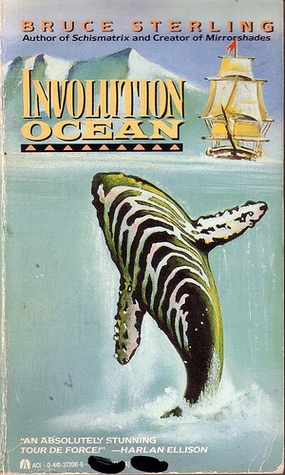What do you think?
Rate this book


191 pages, Mass Market Paperback
First published January 1, 1977
I was hooked by the opening lines of Involution Ocean: "We all have some emptiness in our lives, an emptiness that some fill with art, some with God, some with learning. I have always filled the emptiness with drugs."
Involution Ocean was Bruce Sterling's first novel. Sterling is best known for being a major writer in cyberpunk science fiction, but this novel pre-dates cyberpunk. This wonderfully weird novel is about whaling, aliens, and, of course, drugs. I'm not sure everything makes sense but it is a fascinating read.